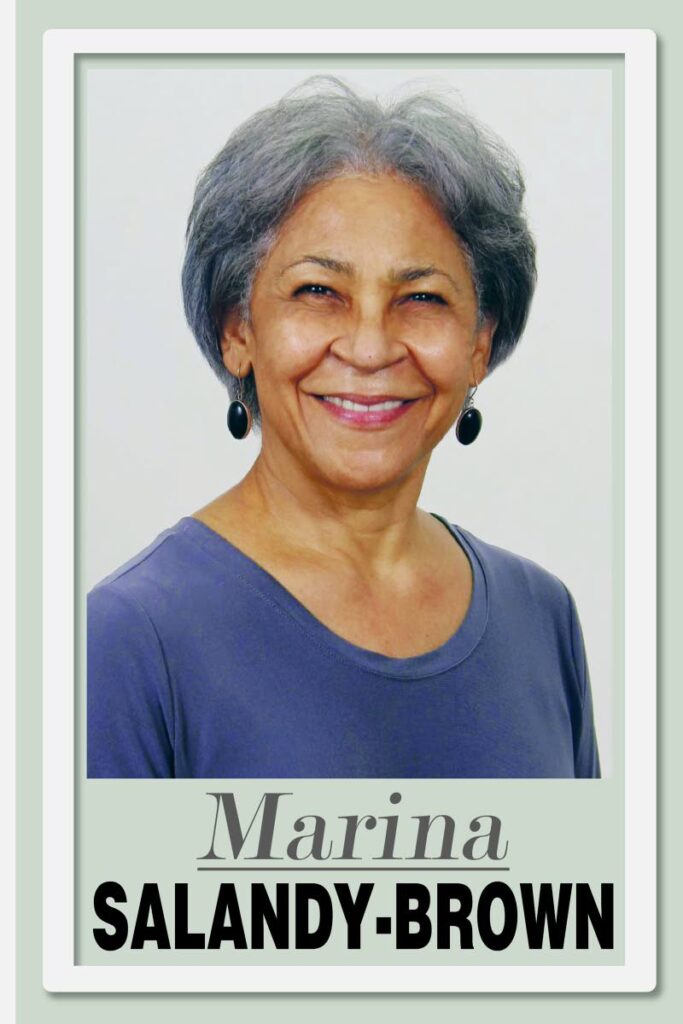When rules make no sense

KING Charles III’s official birthday on June 15 was celebrated on June 12 in this country by the British High Commission. The dress code for the garden party hosted by the High Commissioner, Harriet Cross, and her husband, Mr Philip Saltonstall, was elegant/smart casual.
Not leaving anything to chance, on the invitation, a picture of an English beach suggested a seaside theme. It was a very clever nod to the weather’s unpredictability in what was a very rainy week for an outdoor party. It could have been a soggy British-style evening, but, having covered (literally) all their bases, the couple were blessed with a dry but humid evening as our tropical sun set over the steep nearby hills, which was just as well, because the sandcastles on the cocktail tables might not have endured a heavy shower.
One female diplomat followed the theme and wore a designer pair of white shorts with a floral top. It won her a fancy umbrella for the most appropriately dressed person. The rest of us women went with the traditional options.
Among the men, the only official person I noted not wearing a dark suit was the Colombian ambassador, who very sensibly sported a long-sleeved, loose-fitting, white linen shirt.
Our Minister of Foreign Affairs, Dr Amery Browne, was equally clever to opt for smart white cotton trousers, an open-necked, serene white-background shirt with a green and sand-coloured tropical design, matching cool, greenish jacket and accent handkerchief in his top pocket. He cut the best dash, but received no prize for that or his perfectly brief speech.
Full marks to him and High Commissioner Cross for the gift of brevity, because for the dark-suited men with ties, the torpid evening air was stirred only slightly by the ladies' fans immediately around them. To a man, the perspiration spread through their long-sleeved cotton shirts and their lined jackets to darken their suits even more. Their chests were wet, their thick collars wetter, their jackets sodden to the touch. I imagined their socked feet in laced-up leather shoes, swollen. Sheer hell.
One elegantly composed but very wet man wore a silk cravat.
This column is not strictly about fashion. It is also about why we persist in ways of all sorts that do not suit the way we live or where we live, and about our love of protocol and our weakness when it comes to changing things to suit ourselves, or simply getting it wrong.
The African and Middle Eastern nations wear their robes when they choose because it suits their climate. Dark, lined suits do not suit ours.
I remember the days when shirtjacs were what most men wore for comfort, from Jamaica to Trinidad. They make perfect sense for our climate. A form of the shirtjac, a guayabera, is widely worn in tropical zones of Latin America.
The short-sleeved, crop-necked jackets worn by Trinidad and Tobago trade union leaders, and always by Mr Roget of the OWTU. are elegant versions of the practical design.
I am not sure what happened or when, but few men seem to wear such practical clothing nowadays. I could hazard a guess that guayaberas, religiously worn by the likes of socialist politicians such as Michael Manley and often by our David Abdulah, may be too closely associated with the left.
There obviously is an international style that all men, everywhere, sign up to – dark suits and ties – regardless of the conditions, and, according to the rules, do not remove their jackets while in company. If European gentlemen’s clubs dictate, as they probably do, that a Nehru-collar jacket or South American-style men’s clothing are inadmissible, we can see that the rules have been set and it is simply more convenient to don the European uniform, no matter the sweat. I once witnessed a drenched European new arrival, unaccustomed to the humidity, almost faint at an official reception, in his three layers of cloth and silk tie.
I doubt there is any reason why Trinidad and Tobago cannot decide to have its own men’s dress code. There cannot be any rule, except the desire not to stand out and to look professional when in official company. The time might have come to get truly smart.
The sense of protocol might be a humbug, but we overdo the protocol. I remember shortly after Dr Rowley became Prime Minister, he entered an auditorium for a public – not official – event, and the audience stood up.
The Prime Minister complained that he was not the president and it was unnecessary. Similarly, at the opening of a public event which I hosted annually, President Carmona once agreed with me that we were not duty-bound to play the national anthem because he was present. He, too, observed that we make unnecessary rules.
Dr Browne’s elegantly casual attire on June 12 gave the men present permission to break with tradition. Maybe Trinidad and Tobago needs to make public that we are resetting the clock to modern existence and the new norm of abnormally high temperatures. Things could only get worse.

Comments
"When rules make no sense"